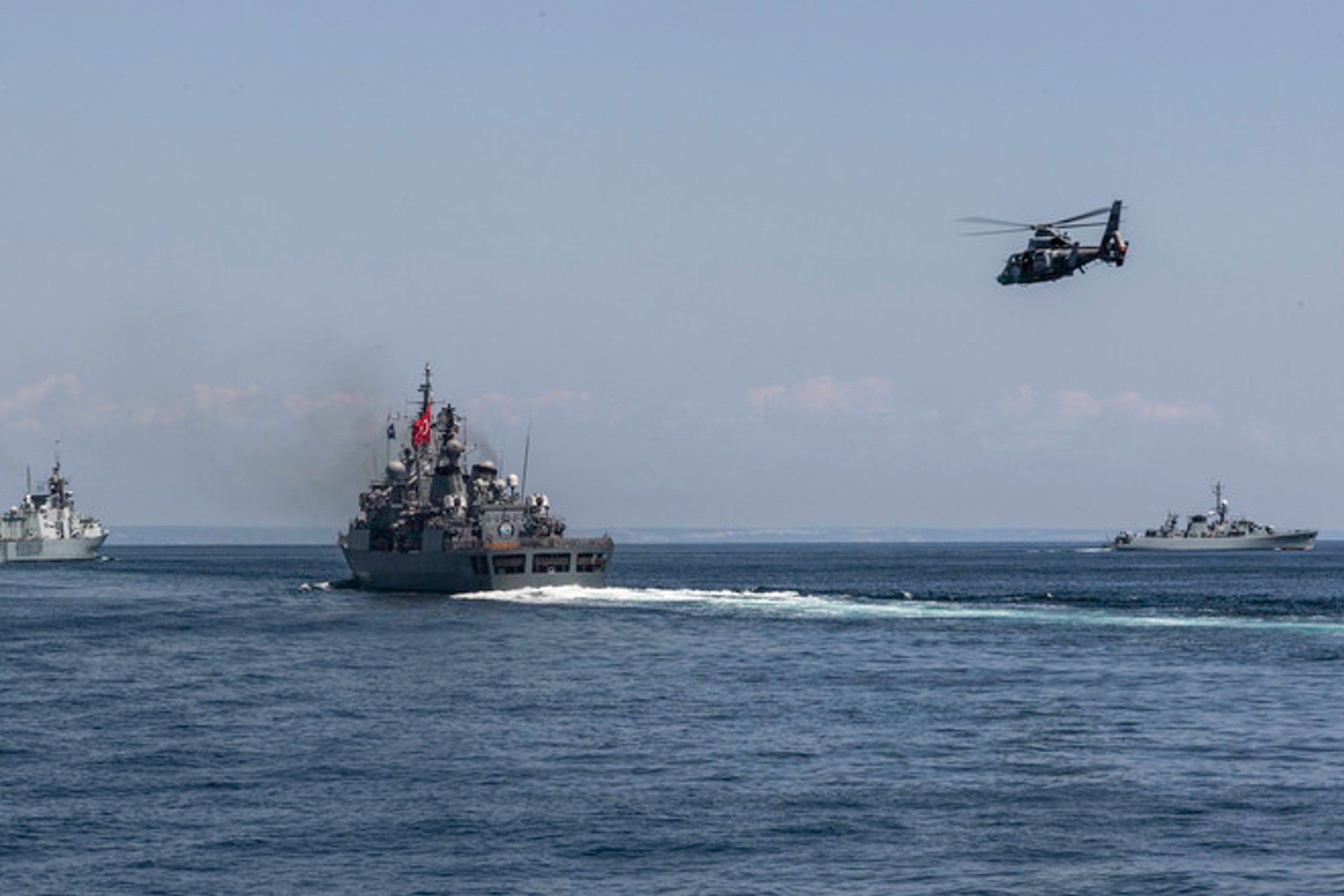Home > Publications > DEFINING THE BLACK SEA SECURITY
DEFINING THE BLACK SEA SECURITY
02.05.2023

Ladies and Gentlemen, Today’s discussion is dedicated to the Black Sea region. I remember 20 years ago, when I would come to this building as a representative of the Republic of Bulgaria to meet with representatives of all Black Sea countries to exchange information about the armed forces and exercises in the Black Sea and extend invitations for port visits within the framework of the regional security architecture. This was the spirit of positivism and cooperation, the time for new initiatives for peace and partnership. All our speeches would start with the optimism for the future of the Black Sea region as a crossroads between continents, cultures and economies. This positivism faded in 2008 following the Russian invasion in Georgia and completely disappeared in 2014 after the illegal annexation of the Crimean Peninsula and the military venture in Eastern Ukraine. Today full-scale war is back on the continent of Europe. The war Russia is waging against Ukraine brings suffering and destruction not only to the Ukrainian people, but is a blow to the entire system of international relations. It shatters all efforts in the post-World War II period of seeing Europe peaceful and free. A Europe of free peoples that choose their own paths for development or organisations to be part of. Despite the Russian disinformation and propaganda, despite the efforts to misrepresent or to paint Ukraine or other states as responsible, we have a touchstone for this war. In periods of such trials, we turn to the wisdom embodied in the philosophical understanding of human nature in the works of the renowned philosophers of our time. One such is Tsvetan Todorov, a Bulgarian and French philosopher, who grew up in Bulgaria but worked in France - one of the founders of contemporary critical humanism. Humanism considers human well-being as the ultimate goal of all public actions. Tsvetan Todorov firmly believes that the end does not justify the means, especially if war is the means. Tsvetan Todorov sees another reason for wars. As he puts it: “Power needs no explanation outside of itself; it is an end, not just a means.” He is in line with the German philosopher Immanuel Kant, according to whom “War itself requires no particular motivation; indeed, the desire for glory inspires men to it.” Deep down, I doubt that Russia's war of aggression, will bring Russia any particular glory. As a representative of the humanism Tsvetan Todorov rejects the aggressive war as inhuman. We pledge solidarity with the Ukrainian people, who are fighting for their nature to be Ukrainian people and not to be formatted according to the image the Kremlin devises for them. This is a fight for the principle of freedom. Because war is not only war for territory. Territory must be respected. This is a key aspect of international relations; however, it is for the people in the territories, about their future. What is unacceptable is not only breaching the borders but also the submission of the population, forceful deportation, castigating people and inflicting unbearable suffering on civilians. The Russian war of aggression tests not only Ukraine and its people, but it is also an attack on the security and perspectives for development of the Black Sea region. The region is vital for Bulgaria and other regional countries. In our interest is building security, stability, prosperity and resilience against territorial and economic threats in the Black Sea region. The Black Sea has a great potential as an important transport, energy and economic corridor that provides connectivity between Europe and Asia. This potential is seriously impaired today. The importance of the Black Sea transcends the regional aspect. In the context of Russia's war against Ukraine, the geostrategic importance of the region is clearly seen. We have witnessed how Russia's blocking of Ukrainian grain exports had negative impact on the global food security. Stability and security of the region is directly linked to the stability and security in Europe. The Black Sea is one of the regions where Russia projects military force against freedom and democracy to impose its vision of a new world order. The events of the past year have confirmed that Russia is using all means at its disposal to maintain its sphere of influence in the region. Russia’s military buildup in the Black Sea created significant imbalance in the military powers in the region in favor of Russia, which is a matter of serious concern for the other littoral states. Russia is expanding its control over the northwestern Black Sea basin, adjacent to the territorial waters of other riparian states, where it imposes restrictions on economic activities, poses direct challenges to maritime transport and impedes the freedom of navigation. Obviously, we are facing complex security environment in the Black Sea region, combination of military and hybrid threats. We shall not forget the frozen conflicts or vulnerabilities of critical infrastructure. In this context it is necessary to look for broader approaches to solving security issues in the region, as they have implications going far beyond the regional dimension. Thank you for your attention.
